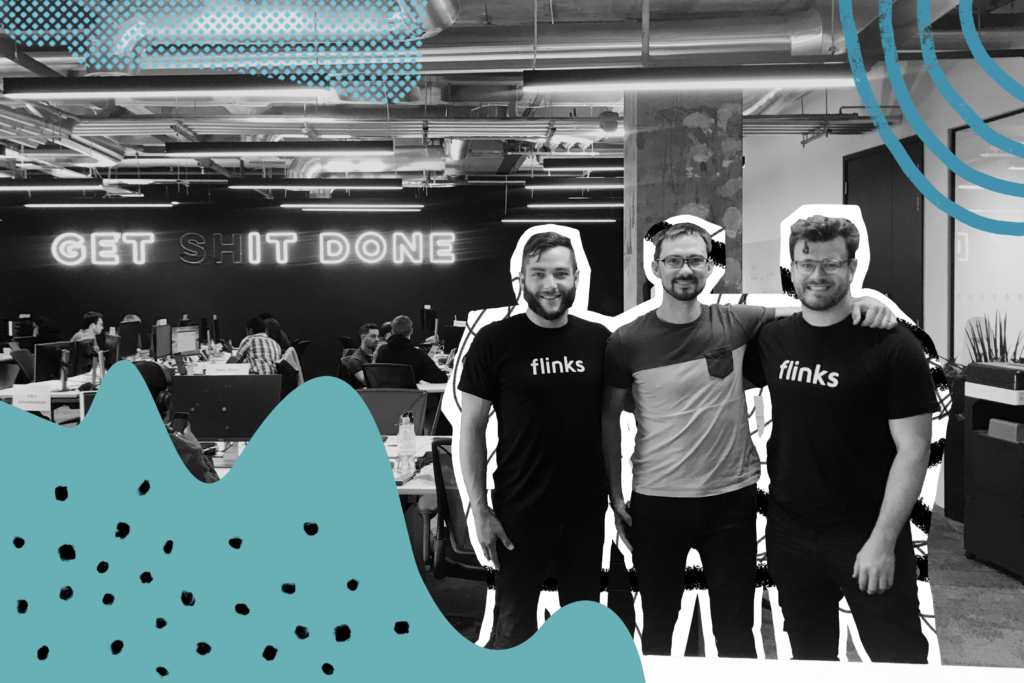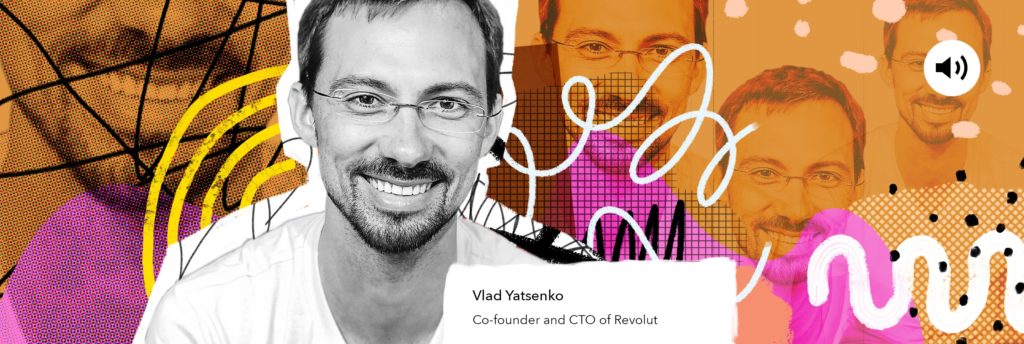
Fred Lavoie is Flinks' co-founder and COO. He leverages what he learned through successes and failures to build the future of finance: one that enables everyone to play the lead role of their existence.
Revolut’s Vlad Yatsenko on Doing to Banks What Uber Did to Taxis
Challenger bank Revolut is one of Europe’s best-known fintech companies. Founded in London just four years ago, it is now active in 51 markets and reports they’re onboarding 30,000 customers a day.
Flinks traveled to the UK to meet with Revolut co-founder and chief technology officer Vlad Yatsenko about the company’s staggering pace of growth.
In this episode, Vlad opens up about what Revolut’s teams learned while scaling building their global banking platform, and how they overcome the challenges involved in cracking into new markets.
We got so much out of our conversation with Vlad that we decided to turn it into a two-part mini-series. Ready to hear the second episode? Get it right here!
Connect brings you deep dives into the world and mindset of innovators. If you liked this conversation and don’t want to miss on future episodes, catch us on Apple Podcasts and Google Podcasts, stream us on Spotify, or subscribe on your favorite podcast app.
No time? No worries! Read our 4 key takeaways from the conversation
- Topple traditional structures
Give your organization the elasticity to scale. Eliminate old school hierarchies. Time spent navigating and adhering to rigid management structures can detract from time spent on customer problems. Offset human weaknesses and reduce workloads by automating processes as much as possible.
- Standardize … but don’t overstandardize
When a particular approach works, build it into your rulebook moving forward. On the other hand, keep nimble and don’t stump innovation by over-standardizing processes. Revolut has playbooks for new markets and principles-based frameworks for governance and risk management. Neither are set in stone.
- No two markets are the same
Payments systems, protocols, regulations and customer values vary. The perks of a global financial platform are an easier sell in some places than others. In densely-populated multilingual Europe, for example, people are accustomed to crossing borders for work, juggling currencies and switching between languages. In the US, not so much.
- Break-ups are hard
The old adage goes that people are more likely to get a divorce than dump their bank. Regardless of whether people like or hate their current account, they are unwilling to part with something they’ve committed to since being a teenager. In order to penetrate new markets in a truly significant way, challenger banks need to break down that psychological barrier.
Here are a few highlights from our conversation.

Find problems that feel real to everyone
Adam: When looking into Revolut the metric that struck me was the number of daily or monthly active users. Because that’s the challenge.
People might have acquired a product but are not actually touching it. Total number of users is a great vanity stat be it’s not that useful. In your case, a material portion of your users are actually using you. Who is a Revolut user?
Vlad: When we first started this is a question we got all the time: who is your customer? Our product was defined in really simple terms: with Revolut you can exchange, send and spend money anywhere for free.
“That was it. Whoever needs to do this is our customer.”
Fred: How relevant are those three principles years later?
Vlad: They’re still very relevant. Even when we add additional services, the cross-currency and cross-border principle is followed. For instance, we recently launched free stock trading.
The first stocks we added were US stocks for European customers. Before, if you were in the UK, you could easily lose 10% just on fees. We eliminated that by allowing our users to connect to different markets using one platform.
Change the market by delivering true convenience
Fred: Revolut’s purpose is being a global bank. What does that look like?
Vlad: Before Uber, what was your taxi experience? You probably were used to your local company. You had to think, before going somewhere: How does the taxi work in this city? How do they charge? What is the number I need to call? How do I deal with the language barrier?
“These problems completely disappear. People don’t even remember the existence of these problems.”
Now, it doesn’t matter where you go. You just land there, open the app, press a button. You know how much it’s going to cost, in your currency.
Similarly, with finance where we’re going to end up is what we’re doing now with Revolut. A couple of years ahead people will be like: “Yeah this is how it should be.”

To keep up as you scale, standardize but don’t overstandardize
Adam: What do you find is the hardest part of your business to scale?
Vlad: The usual bottleneck for growth is the human factor. Pretty much every human, including myself, becomes a bottleneck at some point. It’s important to focus on the human power, not the human weaknesses — and reduce the human weaknesses as much as possible with automation.
We didn’t try to create rigid structures that eventually end up blocking your scaling.
“To scale, you need to have certain things that just work: standard processes, understanding what is what and who’s responsible for it.”
Adam: How do you handle that?
Vlad: We have frameworks with defined principles around them. With them, they get improved, they adapt to our scale. Things that are worth standardizing, we do standardize. Those are things where we can take the experience that we gained and just replicate it in another place.
In programming there’s this concept of “code reuse”. Sometimes it’s taken too far. You have to balance to avoid overstandardizing.
Test, learn, rinse, repeat
Adam: How do you handle scaling a more or less similar product across boundaries when you have completely different datasets and legislation to deal with.
Vlad: We’re now at the point where we have playbooks for everything. These playbooks are not set in stone. We tried a playbook in a new market? Okay, what worked, what didn’t work? What did we learned and can integrate into the playbook, and what is specific to this market only?
Fred: If you’re looking do to everything right when entering new markets, you’d only be in a fraction of the markets you’re in right now. So how does this balance of risks and rewards look like?
Vlad: The way we see it is: the sooner we start, the sooner we learn. In the beginning there are lots of unknowns, things you can’t plan. Some markets are tougher than others.
When we go to markets outside of Europe, there’s a lot of new learnings. The understanding of what we’re trying to achieve or the problem itself is now the same.
You might also like

Revolut’s Vlad Yatsenko on Building World-Class Teams
Revolut’s CTO Vlad Yatsenko shares how a fast-growing company can scale its workforce while keeping all moving parts focused and in sync.

How Banks Successfully Leverage Data: They Don’t Do It Alone
Banks and credit unions sit atop huge pools of data, but they won’t enjoy the value if they keep using yesterday’s tools. Intrepid businesses are working with technology partners to leverage data and find creative solutions that top the market.